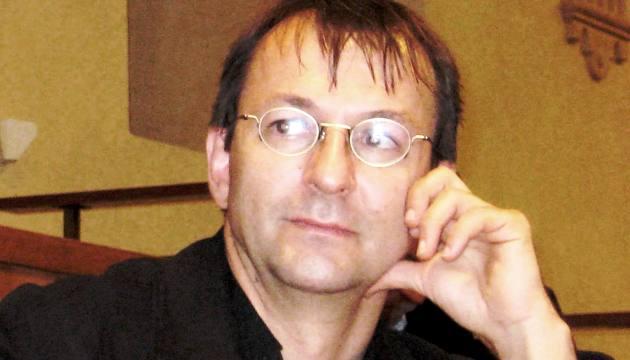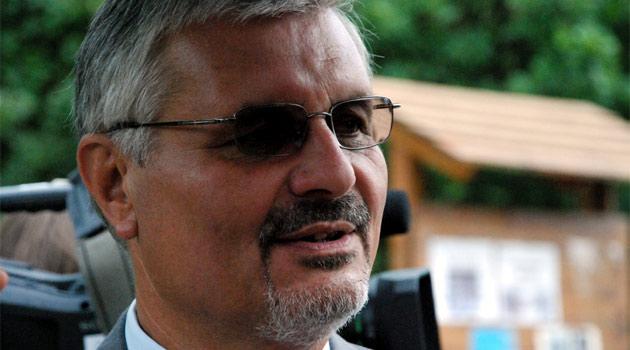After the revolutions of 1989, freedom speech became a "sacred right" in the new democracies of the post-communist world. This was hardly suprising.
During the previous totalitarian regimes, ordinary citizens had spent many years being so very "damned careful" not to end up in prison for uttering a clumsy phrase in public. Czech society then took up the North American concept of freedom of speech without understanding that the legal system there also guarantees citizens protection against any abuse of this fundamental right through legal instruments that are different from ours.
At the same time, Czech society often did not realize that North America had not experienced the systematic liquidation of any members of minority groups for a very long time, which is why its legal system is and can be different from European ones when it comes to freedom of speech. The Czech Republic gradually underwent legislative changes, mainly thanks to the internationally-agreed adoption of EU legislation, and then the procedures undertaken by local courts gradually changed as well, with a key role being played by the decisions of the Supreme Court and the Constitutional Court and their justifications for those decisions.
From protection of personality to protection of democracy
From the beginning, it was mainly the right to protection of personality in the Czech Republic that made it possible for attorneys to protect their clients from systematic smear campaigns by the tabloid press or by their political opponents. Recently the conception of the legal provisions for protecting minorities has changed as well.
The main reason for this change is definitely not any newfound love of "others", but primarily the high costs of protecting the health and lives of the population, including members of the police, from the hateful demonstrations that have been afflicting this country for several years. Last year’s violent unrest in various parts of the country cost the taxpayers hundreds of millions of crowns, if we include the costly, protracted court proceedings against the throwers of stones and other dangerous objects.
That cost does not include the long-term psychological consequences of these incidents for the children who have had to experience street battles up close just because of where they live, as well as the psychological costs to the police officers deployed. From the beginning the state’s approach to extremist violence had been to attempt to eliminate or punish the legal subjects involved in these incidents, succeeding only partially.
The Workers’ Party (Dělnická strana) was abolished by the Supreme Administrative Court, but shortly thereafter was revived as a "new" party with a slightly altered name. Ever since then, however, it has stopped agitating against minorities through the use of a "militant" vocabulary and has also stopped attempting to create defense units on the model of the Nazi SA; however, even though last year the new party played just a marginal role in the public incitement of the hatred, violent demonstrations espousing the "collective guilt of minorities" experienced record-high attendance in the Czech Republic.
Courts newly-focused on populist politicians
This is also why several courts are now beginning to focus on specific populist politicians who are sparking a militant atmosphere in society from the safety of their desks. A key example of this change is the April decision of the District Court in Prague to find former Czech MP Otto Chaloupka guilty of inciting hatred.
He has appealed his six-month probationary sentence, which means the case will now become the subject of a trial. During his time in Parliament, Chaloupka publicly threatened a specific person through an online social network that if he didn’t change his behavior, then "the slaughter will start", adding: "I can already hear the roar [of the mob]. It won’t matter how fast you try to escape."
This can be understood as an indirect call for violence when we realize how many tens of thousands of online social network users might be inspired to take to the streets against police officers protecting the health and lives of citizens. The court took into consideration the politician’s longstanding agitation against members of minority groups, a tactic he tried to use to increase his popularity and his chances at re-election.
There is no way of knowing whether the higher courts will uphold this verdict. In any event, it would be a legal precedent in the Czech-language Facebook world, where for the time being anyone can do "whatever he wants".
At whose hand did the newborn victims of Nazism die?
At the start of this month, another public figure laid into the victims of Nazism in a heretofore unheard-of way, right at the time when the international remembrance ceremonies for the 70th anniversary of the liquidation of the "family camp" at Auschwitz-Birkenau were taking place, commemorating the fact that during just one night, thousands of Romani people, mainly children, elders and women, were brutally murdered by the German Nazis. A representative of the Czech Embassy laid a wreath in their honor in Warsaw.
Tomio Okamura, an MP with the "Dawn of Direct Democracy" party and a long-time fighter against "inadaptable minorities", publicly stated, on the basis of the principle of collective blame, that in the Protectorate-era camp of Lety u Písku "No one was killed … – people died there as a result of old age and the diseases they brought with them as a result of their previous travelling lifestyle." Here he evidently forgot the fact that children were born in the camp, the vast majority of whom quickly died and who could not have ever caught anything outside the camp.
The sentence of Okamura’s that sparked the most outrage among the surviving relatives of the victims of the camp is this: "The victims of the camp definitely were not victims of any kind of Holocaust." The first criminal complaints have now been filed against the politician, who enjoys parliamentary immunity, and others are reportedly being planned.
Several years ago, the Communist politican Miroslav Ransdorf made a similar statement in a cleverer way. He confined his remarks to the phrase that "there was never any concentration camp" at Lety.
At that time the journalist Petr Uhl filed a criminal complaint against Ransdorf which was dismissed by police, who claimed that this public statement in his capacity as a Member of the European Parliament did not rise to the level of a felony. It must be acknowledged that no one could charge Ransdorf with engaging in any long-term incitement against minorities or promoting Nazism; there was no longer-term context available from which to judge him for committing those criminal remarks.
Last July Petr Nečas, who was the Prime Minister of the Czech Republic at the time, emphasized during a commemorative ceremony at Lety u Písku – for which he was the sole person in attendance – that the victims of that camp had died "as a result of the conditions into which they were thrown by force, by the malice of the Nazis, and also – and this must be stated openly – through the activity of the Protectorate authorities, the Protectorate Police and the Protectorate gendarmarie, i.e., by Czechs." His words stating that "the suffering there was part of the Nazi genocide" continued the legacy of the previous statement by Jaroslav Šebek, an historian and employee of the Czech Academy of Sciences, who said the same thing several years ago.
What will the courts say?
In the interim, the times have changed, as is demonstrated by the latest jurisprudence in this area. The Supreme Court of the Czech Republic, in a resolution adopted 16 May 2012, refused the appeal of a Holocaust denier, upholding his sentence of six months on probation and stating that "per Article 17 paragraph 4 of the Charter, freedom of speech and the right to seek and disseminate information may be restricted by law when this is a measure essential in a democratic society to protect the rights and freedoms of others".
The convicted Czech-Canadian citizen, Vladimír Stwora, had "merely" published in Toronto on his Czech-language website an article by another author doubting the Holocaust. The determining element in the five-year legal dispute became the legal argumentation and persistence of attorney Petr Jakeš, representing the League against Anti-Semitism (Liga proti antisemitismu), and the time context in which the perpetrator committed his offense.
The Constitutional Court of the Czech Republic, in its finding dated 28 November 2011, defined its procedure on minority issues by saying it "identifies with the principles of protecting democracy, the legal application of which is justified given the historical experience with Nazi and Communist totalitarianism not only in our state, but in the Europe-wide context. If those opposed to democracy and to the values on which democracy is based are prepared to attack it, then a democratic regime must be prepared to defend itself against these attacks, and in necessary cases even by restricting fundamental rights. (…) The right of a minority to express its political stance must not be exchanged for the right to espouse wrongdoing by any means necessary; the obligation of a democratic state where the rule of law obtains (and where the state is not bound by any exclusive ideology) is to wield state power within the limits and by the methods established by law, and this cannot be exchanged for a refusal to confront manifestations of hatred and wrongdoing, including through methods that may seem harsh to the disseminators of such speech. (…) Restricting or even criminally prosecuting speech will be essentially necessary in a democratic society only when such speech shall contain calls to violence or the denial, doubt, approval or justificatoin of crimes against humanity committed in the past (see, for example, the so-called ‘Auschwitz Lie’) as well as support or promotion of movements aimed at suppressing fundamental human rights and freedoms, especially in relation to particular minorities."
In the case of Tomio Okamura as well, everything will mainly depend on the capability and persistence of the attorneys representing those who file the criminal complaints to convince the relevant state prosecutors that the complaints are justified. However this dispute turns out, it can significantly contribute to the many years of discussion regarding the operation of a smelly pig farm at a site which, given the cruel events perpetrated in every European state during the Nazi era, should instead be held sacred.

